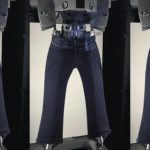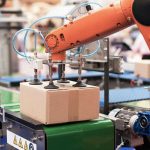Could Robots Actually Create More Jobs?
One of the biggest sources of anxiety for workers and job seekers–at least according to the latest reports–is that they’ll be rendered obsolete when their daily responsibilities are automated. Between algorithms, artificial intelligence, and actual robots, we can glimpse a future where human work will at least be transformed.
But a new study from Redwood Software and the Centre for Economic and Business Research (CEBR) offers a bit of an antidote.
The report looked at trends in robotics automation in 23 countries over the past 20 years to quantify their impact on GDP per capita and labor productivity. The analysis revealed that robotics now adds more value to the economy than traditionally lucrative industries like financial services and transportation. However, that compared to job growth indicates that we actually aren’t losing workers to automation.
“There is clear evidence that points toward robotic automation in many cases being a complement for human labor, rather than a direct substitute,” said David Whitaker, managing economist at CEBR, in a statement. He asserted that mundane tasks are the ones being automated. As such, Whitaker said, “Human effort becomes more valuable as it is focused on higher-level tasks, creativity, know-how, and thinking.”
Investment in robotics has a greater positive impact on the economy than more established sectors such as information technology, construction, and real estate, according to the report. A 1% increase in robotics investment, the report says, correlates with an increase in GDP per capita of 0.03%.
The report revealed that the U.S. is leading the charge to invest in automation technologies with an estimated robotics stock of $732 billion.
As for the jobs themselves, Neil Kinson, chief of staff at Redwood Software, believes that robotics automation is actually increasing the total number of jobs available. Indeed, the U.S. economy added over 2 million jobs for 75 months since 2009. Like Whitaker, Kinson maintains that work will ultimately change. “The increased level of automation investment highlights the need to rethink how we approach the skill sets needed in the workplace, and the importance of working with automation,” he said, “and not against it.”
Fast Company , Read Full Story
(63)














